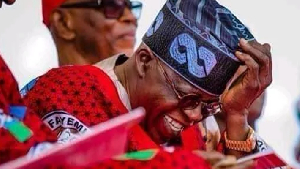The 10 poorest states in Nigeria owe local and foreign creditors about N1.18tn, according to findings by The PUNCH.
While the data for the poorest state was acquired from the National Bureau of Statistics, the debt data was obtained from the Debt Management Office.
The NBS, in its National Multidimensional Poverty Index report, disclosed that 133 million Nigerians are multi-dimensionally poor.
The NBS said 63 per cent of Nigerians were poor due to a lack of access to health, education, living standards, employment, and security.
The Multidimensional Poverty Index offered a multivariate form of poverty assessment, identifying deprivations across health, education, living standards, work, and shocks.
The report presented the level of poverty in each state of the country.
The NBS report showed Sokoto, Bayelsa, Gombe, Jigawa, and Plateau were the top five poorest states in 2022.
These states were followed by Yobe, Kebbi, Taraba. Ebonyi, and Zamfara.
The PUNCH observed that the top 10 poorest states had a total of 43.99 million poor people, which was 33.08 per cent of the total population of poor people in Nigeria.
Sokoto led the poorest, with 90.5 per cent of people in the state poor. It is followed by Bayelsa with 88.5 per cent poor people, Gombe with 86.2 per cent, Jigawa with 84.3 per cent, and Plateau with 84 per cent.
Yobe had 83.5 per cent of its population as poor, Kebbi had 82.2 per cent and Taraba had 79.4 per cent.
Both Ebonyi and Zamfara states each had 78 per cent of their total population poor.
The NBS report noted that 65 per cent of poor Nigerians (86 million) were in the North, while 35 per cent (nearly 47 million) were in the South.
The report noted, “Overall, 65 per cent of poor people – 86 million people live in the North, while 35 per cent – nearly 47 million – live in the South. In general, a disparity between North and South is evident in both incidence and intensity of multidimensional poverty, with the North being poorer.
“However, the level and number of poor people needs to be addressed in all zones – each of which are home to between 11 and 20 million poor people except North-West, which has 45 million poor people due to its larger population and higher level of poverty.”
It also noted that 72 per cent of people in rural areas were poor. It was the same for 42 per cent of people in urban areas.
Aside from struggling with a high poverty rate, the 10 poorest states also struggled with local and foreign debts.
Data from the subnational debt report as of December 2022 showed that the states had N998bn domestic debt and $386.16m foreign debt (about N178.28bn, using the exchange rate of the Central Bank of Nigeria of N461.68 to a dollar as of Tuesday).
From the debt data, Plateau had the highest local debt of N149.01bn, then Bayelsa (N146.37bn) and Gombe (N139.32bn).
Zamfara had local debt of N112.2bn, Yobe had N90.76bn, Sokoto had N90.6bn, Taraba had N87.96bn, and Ebonyi had N76.5bn.
The least owing states on the list for subnational domestic debt were Jigawa (N43.95bn) and Kebbi (N61.31bn).
The PUNCH further observed that Bayelsa had the highest foreign debt of $60.39m.
It was followed by Ebonyi ($58.57m), Taraba ($46.47m), Kebbi ($40.93m), Sokoto ($36.56m), Gombe ($32.48m) and Plateau ($32.4m).
The least debtor owing foreign creditors were Yobe ($22.51m), Jigawa ($26.99m), and Zamfara ($28.86m).
The PUNCH further observed that despite the high poverty and debt, some of the states released huge pension benefits to their past governors.
The Jigawa State ‘Former Public Officers Pension and other Benefits Law No. 15 of 2015’ stipulates that a governor who successfully completes his term without impeachment will be entitled to a monthly pension equivalent to the current salary of the current governor, two brand new vehicles to be provided by the state government and to be replaced after every four year, six-bedroom fully furnished house, two personal assistants not below grade level 10, two drivers selected by the governor and to be paid by the state, a fully furnished office in any location of choice and fully paid medical treatment within Nigeria and abroad.
The deputy governor is also to get a monthly pension equivalent to the incumbent’s salary, one assistant not below level eight, one brand new vehicle, a four-bedroom flat, and an office in a location of his choice.
In Sokoto, each former governor, under the Sokoto State Pension Law, gets N200m every four years, while the deputy is entitled to perks amounting to N180m, being monetisation for other entitlements, including domestic aides, residences, and vehicles that can be renewed after every four years.
Business News of Thursday, 8 June 2023
Source: www.punchng.com













